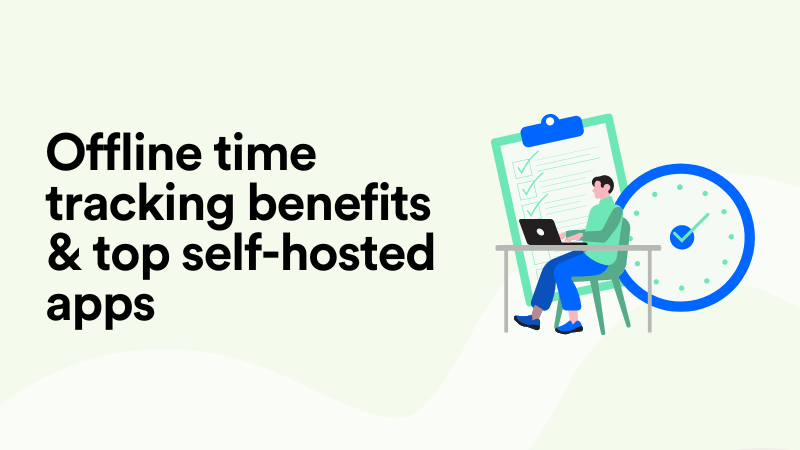The Real Reason Employees Hate Time Tracking

Hate is a nasty word.
But sometimes you have to cut to the chase: Employees hate time tracking. And even self-employed people are annoyed by it.
In the 6 years of our company's history, we haven't met a single person who likes to track their times on projects. But the real reasons behind it aren't clear to everyone yet.
That's why we would like to shed some light on the subject.
The time tracking process simply doesn't work
No one wants to admit it. But the symptoms are visible to everyone:
- Many put off the task with a guilty conscience
- Times are then usually put in too late
- Bosses, controllers, and project managers have to chase after their colleagues
- Regularly angry reminders are sent out
- And everyone knows that one colleague who completely refuses to track times
3 time tracking types
Basically, almost every company has the same three time tracking types:
1) Conscientious
Employees who enter their times on projects on a daily basis.
They are the clear minority in any company that does not explicitly insist on daily time tracking and sanctions non-compliance.
2) Catch-up
Employees who enter their times on projects every 2-3 days or at the end of the week.
The vast majority. They put off tracking their time at first and then force themselves to remember them later. Doing that over and over again can become a major headache because it is hard to remember after more than one day.
3) Rebel
Employees who refuse to do their time tracking - or do it only after multiple requests at the end of the month.
A rare species, but they exist in just about every major team.
The tracked times are completely unrealistic
According to the study "Time is money" featured in Harvard Business Review, even "conscientious" people only track with a maximum accuracy of 67%.
- Even with daily time tracking, at the end of the day 33% of the times have been forgotten and assigned to the wrong projects.
- If the times are tracked only every 2-3 days or once a week, as in the case of "catch-up" employees, already 45-52% are tracked incorrectly.
- The fact that the times of "rebels" have practically nothing to do with reality and strongly falsify the times of their colleagues when it comes to project work, is not an accusation, but only logical.
Why and how much wrong project times can reduce the profit of service providers, we have described for you in another article.
Why employees will never make an effort
Again, it sounds accusatory, but we say this with complete sympathy — as a time tracking company, we hear it often.
In fact, here’s a quick video where Carlota from our Customer Success Team talks about this with Marita, our Senior Marketing Manager:
"Conscientious", " catch-up", and "rebel" employees differ only in how often they track their time - but they all hate tracking their time. Why?
The only thing that can be checked (i.e. rewarded or sanctioned) is the frequency with which times are entered. Not the quality of the times.
Because nobody except the employees themselves can know how long they really worked on which project.
This means that there is no possible way to distinguish yourself through particularly "good time tracking". Quite the opposite.
Time tracking keeps you from doing the "real work"
In truth, those who invest less time in their time tracking have an advantage.
Because they have more time for their actual (and value-adding) work. The work that can be evaluated qualitatively - and receive positive feedback.
We have encountered many bosses who have little understanding for this. After all, time tracking is part of the job. Anyway, it's done quickly, isn't it? But is it really?
Many bosses either do not track time themselves or haven't done it in a long time. They don't really know what is exhausting about it.
Because theoretically, it is true that a few times on projects can be typed in quickly. But the real time killer is not entering times. It's figuring out the times.
Effective solutions help to find out times
The feeling of sitting in front of an empty spreadsheet at the end of the day, with no idea how many hours were spent on which project, is something pretty much every time tracker knows.
This headache is the real hurdle for employees.
While self-employed people find it exhausting to have to reconstruct their day in their head as well, at least they still have incentives to do so. After all, their salary only comes when they write invoices.
Employees, however, put off their time tracking for exactly this reason: the task is exhausting - and you can't even get credit for it.
How it works
Niclas Preisner
Chief Marketing Officer at Memtime. Expert in implementing efficient systems of automatic time tracking for teams across industries.






